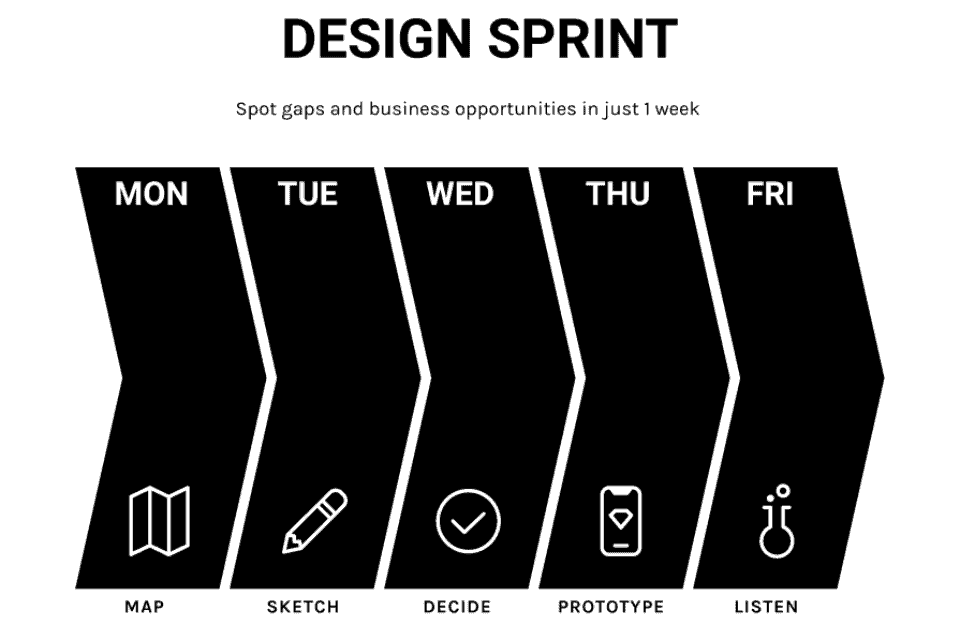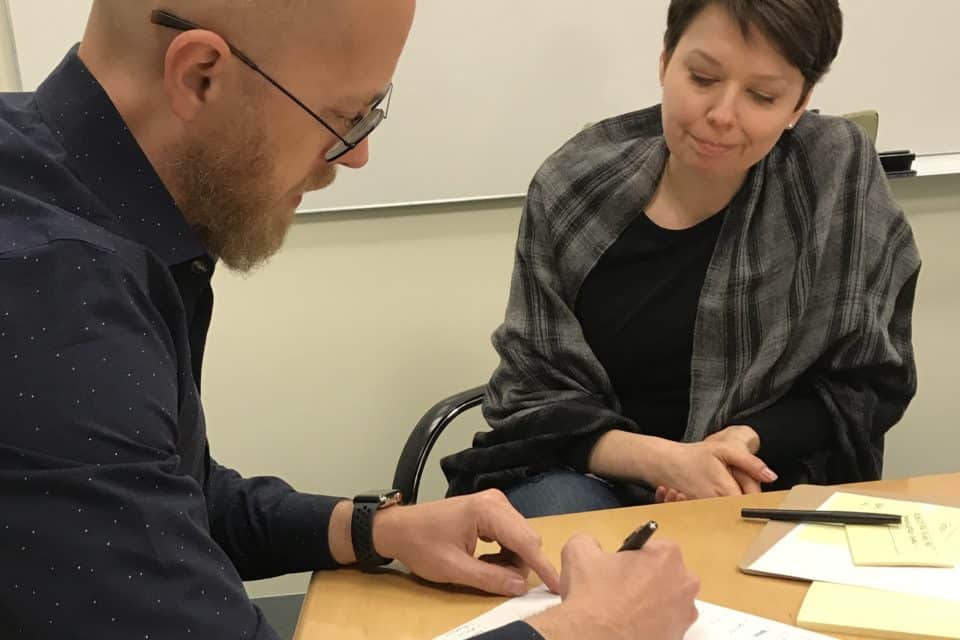The many benefits of Design Sprints for any organization
Design sprints are one of the innovation hot topics of the moment, right up there with design thinking. (Unsurprisingly, the two ideas go hand-in-hand.) So, what is a design sprint and why is it so popular right now? It sounds a bit intense, but the good news is that a design sprint requires no actual running.
Design sprints are a highly effective, even fun, method for approaching a problem or key project. As the word sprint indicates, they’re about getting results fast. Read on to find out what design sprints are and why organizations of all kinds are jumping on board.

What is a Design Sprint?
A design sprint is a focused, five-day process to quickly gather insights on your users, prototype ideas, and validate them. The method originated at Google Ventures and, as they describe it: “it’s a ‘greatest hits’ of business strategy, innovation, behavior science, design thinking, and more — packaged into a battle-tested process that any team can use.”
The process was also described in the book Sprint by Jake Knapp and John Zeratsky. (We highly recommend reading this book if you want to run a sprint on your own.)
What’s great about the design sprint is that it is a tried-and-true formula. If you follow the agenda for each day, you will have a productive week.
What’s great about the design sprint is that it is a tried-and-true formula. If you follow the agenda for each day, you will have a productive week. Over five days, a small group focuses on a business challenge, uncovers actionable insights, and prototypes and tests a possible solution.
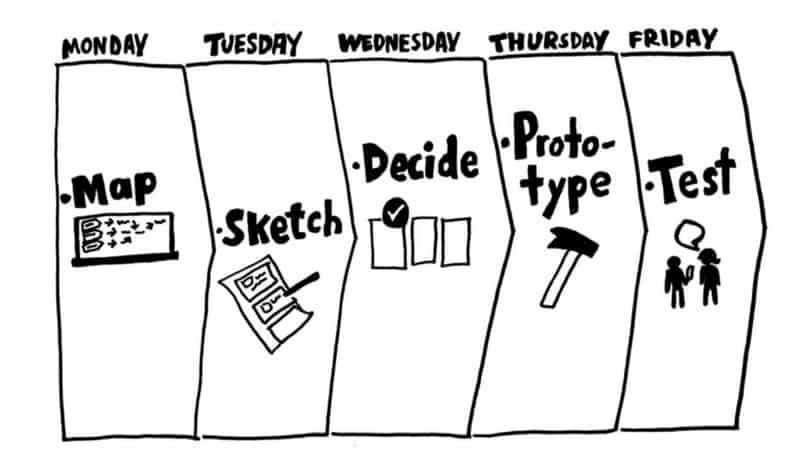
Who’s doing design sprints?
Companies of all shapes and sizes are using the design sprint method and having great success. Google Ventures has run over 150 sprints with companies like Slack, Flatiron Health, and Blue Bottle Coffee. There are also Design Sprint Agencies, like our own, that design and facilitate Design Sprints.
The top reasons design sprints are so popular right now:
1. Results in 5 Days
Everyone is busier than ever at work, and many of us juggle multiple projects in our jobs. In this work climate, it might seem crazy to think that your team can set aside five days for a design sprint. But, if you do, you’ll find that the “lost time” actually leads to leaps in productivity and innovation.
If you have projects that are lingering or taking months to get off the ground, the compressed time period of the sprint can inject tons of needed energy and momentum.
When teams go “heads-down” on a sprint, you achieve at least a month’s worth of work in five days.
We’ve found that when teams go “heads-down” on a sprint, you achieve at least a month’s worth of work in five days. You’ll be amazed at what you have by the Friday of your sprint. It may lead to a true breakthrough or innovation, or at the very least, sprints are excellent moments for team connection and alignment.
2. Hear from Your Customers
Many companies talk about being customer-centric, but at the same time, many companies don’t set aside the time to really talk to their customers. Especially face-to-face. This is another great thing about design sprints: getting customer feedback is baked into the process.
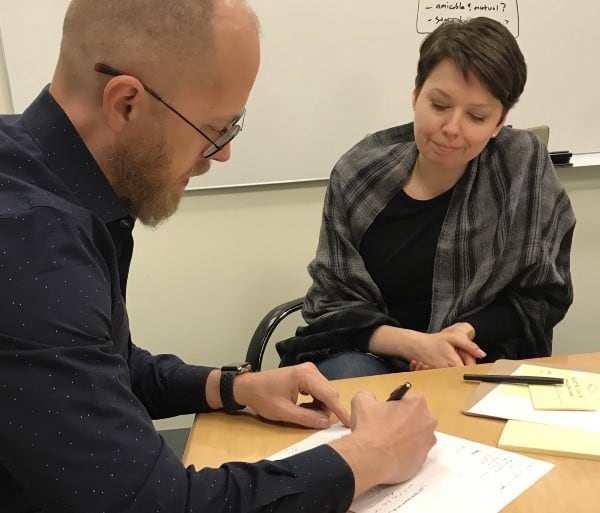
All of the activities in the design sprint lead up to sharing a prototype with potential customers or users and getting feedback. Typically, on the Friday of a Design Sprint week, you interview five users and get their input on your potential product or solution.
Just as the sprint is very effective in five days, you also get rich and meaningful insights from interviews with “just” five users.
3. Design Sprints Teach New Ways of Working
Another benefit of design sprints is that they teach your team new ways of working on problems or approaching challenges. Today, many organizations are investing in design thinking training, which is undeniably important. But, the power of design sprints is that participants learn through doing. You don’t need to tell people how to design think, you can have them actually do it through a design sprint.
The power of design sprints is that participants learn through doing. You don’t need to tell people how to design think, you can have them actually do it through a design sprint.
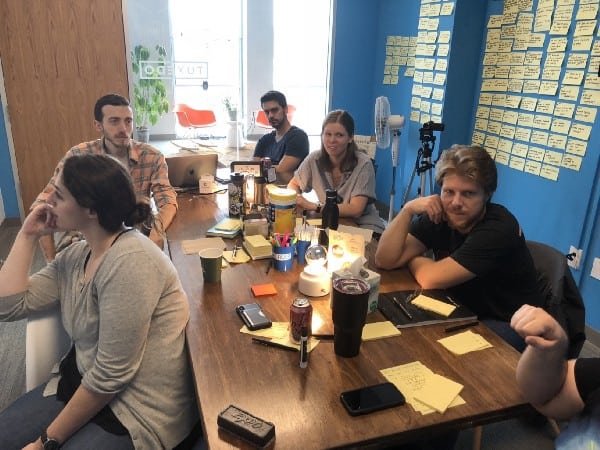
After a five day sprint, your team will have hands-on experience with finding insights on your company, looking for outside inspiration, coming up with solutions, prototyping ideas, and interviewing customers. These are important skills for anyone to take back to their day job.
4. The Power of the Prototype
Just as user testing is essential to the design sprint, so is prototyping. Prototyping is another skill and asset that most companies are looking to leverage right now.
Through a design sprint, you will see first-hand how prototyping gets you to better solutions faster.
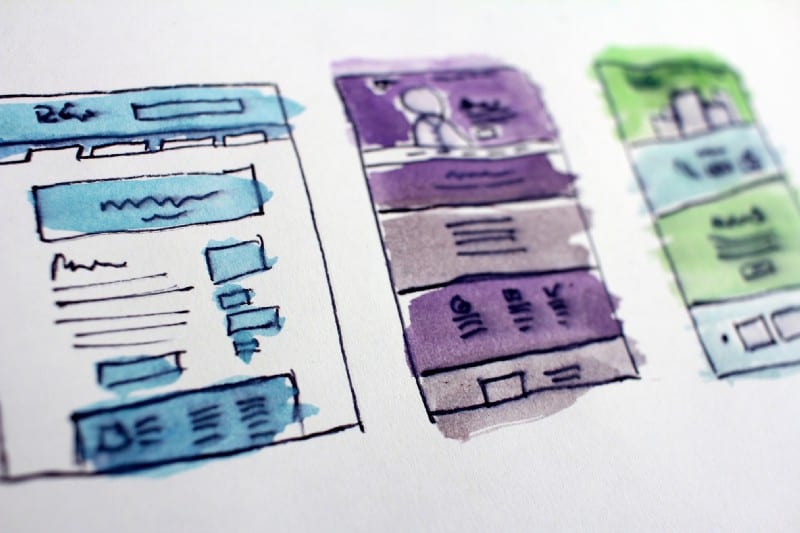
Through the design sprint process, teams prototype a solution. But, don’t let this deter or overwhelm you. Prototypes don’t need to be fancy or technical seo. It may be a clickable prototype made with something like Sketch, Invision or Framer, but your prototype can also be as simple as a landing page, a paper sketch or simple wireframe.
Through a design sprint, you will see first-hand how prototyping gets you to better solutions faster.
FREE DOWNLOAD
Get Our Design Sprint Scorecard
A Google Sheet for capturing notes and insights during Design Sprint user interviews.
5. Design Sprints are Flexible
Another reason we love design sprints is that they are flexible. We’ve been talking a lot about the classic five-day design sprint, but they don’t have to take a full work week.

Ideally, you have five days to set aside, but we understand that that is not always possible. You can expand or contract the design sprint to the time you have. For example, we ran a four-day sprint with the delivery service Favor and it was highly successful. Or, there are ways to spread a design sprint over several weeks or to use some of the techniques in a two-hour meeting.
In other words, don’t let time stand in your way. Most design sprint facilitators or consultants will work with you to design something that works with the time you have.
You Don’t Have to Design Sprint Alone
If you want to run a design sprint at your company but are overwhelmed at the idea of planning and facilitating it, you’re in the right place. Voltage Control designs and leads design sprints for companies large and small.
Having a professional facilitator run your sprint ensures that you can focus on the ideas and the work, not the logistics or “doing it right.” Reach out to us at hello@voltagecontrol.com if you want to talk about running a design sprint at your company.


